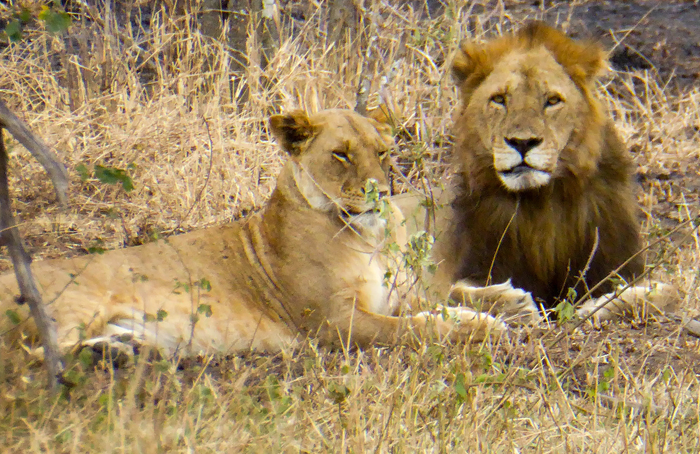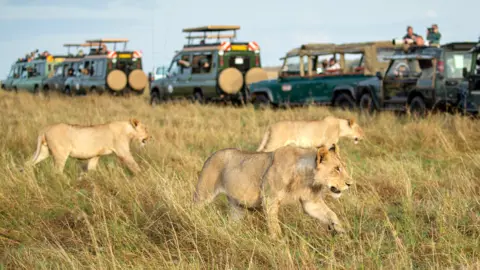Excellent Info For Deciding On Kenya Safaris
Wiki Article
What Transportation Arrangements Should I Be Aware Of Prior To My Holiday In Mombasa Kenya?
To ensure that your trip to Mombasa in Kenya is relaxing and enjoyable It is essential to be aware of the different transport options that are available. Here are a few important considerations for your Mombasa, Kenya trip.
1. How do I get to Mombasa
Moi International Airport is the principal air terminal that serves Mombasa. It handles international and domestic flights. Mombasa is served by a variety of major airlines.
by train. The Madaraka Express, operated by Kenya Railways, offers a comfortable, modern train service connecting Nairobi with Mombasa.
Bus: Bus services are available between Mombasa in Kenya as well as major cities such as Nairobi and Nairobi.
2. Local Transportation in Mombasa
Taxis and ride-hailing services are available in the abundance. Ride-hailing services such as Uber and Bolt operate in Mombasa and offer convenient options for travel.
The three-wheeled car is a low cost and convenient way to get through the city. They can be utilized for short journeys.
Matatus - These minibuses are to share that operate along certain routes. They are the most frequently utilized mode of transportation. It is an affordable alternative, however it can be packed.
Motorcycle taxis, referred to as boda-bodas, are available to provide quick and easy transport for small distances.
3. Car Rentals
Self-Drive Car rental services are accessible in the city as well as at the airport. International and local car rental companies provide a wide range of cars. Be familiar with local traffic and driving regulations.
The chauffeur service If you prefer not to drive, chauffeur-driven car rental is also readily available.
4. Ferry Services
Likoni Ferry The ferry connects Mombasa's island to the city's southern mainland. The ferry is an essential service to reach the beaches to the south. Vehicles have to pay a fee.
5. Excursions and Day Trips
Tour Operators: Many tour operators provide organized excursions to popular attractions such as the Mombasa Marine National Park, Fort Jesus, and nearby beaches like Diani and Nyali. The tours usually include transportation.
Public Transport: Travelers who are not independent can make use of a matatus taxis and tuktuks to a variety of places.
6. Walking and cycling
It is possible to rent bicycles in some areas, particularly on beaches along the coast.
Walking is possible at certain areas in Mombasa. This includes the Old Town and the areas near the beach.
7. Tips for Travelers
Only use taxis when they are reliable and avoid public transportation in the evening. Always be cautious with your personal belongings.
Negotiation is required for taxis and Tuk-Tuks. Since meters aren't widespread, you'll have to negotiate before you travel.
Traffic: Expect lots of traffic on the Likoni Ferry as well as in the central business districts during peak times.
Knowing these options and making the appropriate arrangements will ensure you enjoy a an enjoyable holiday in Mombasa. Read the best mombasa watamu snorkeling for website examples including kenya beach mombasa, kenya safaris, mombasa safari packages, kenya safari tours, trips to kenya africa, kenya safari and beach, mombasa tour companies, tours and travel company in kenya, travel tour companies, trips to kenya africa and more.

What Cultural Sensitivity Considerations Must I Be Aware Of Prior To A Holiday In Mombasa?
Being sensitive to the culture of Mombasa in Kenya is important to ensure you have a an enjoyable experience and appreciate the people living there. Here are a few important aspects to be aware of:
1. Dress according to local dress codes
Mombasa is home to a substantial Muslim number of Muslims. In public places, religious locations, and neighborhoods, it is essential to dress modestly. The covering of the knees, shoulders and chest is appropriate.
Beachwear. While it's okay to wear a swimsuit on the beach itself however, it is recommended to cover your skin when leaving the beach and going to nearby restaurants or shops.
2. Religious Sensitivity
Going to mosques. Request permission to enter the mosque prior to, and then dress conservatively. Women should cover their heads, and everyone must remove their shoes prior to getting into.
Prayer Times: Always be aware of the five times to perform daily prayers. Be respectful particularly if you're in the vicinity of the mosque of a Muslim.
3. Photography Etiquette
Permission: Before taking photos of anyone, always ask permission from them. This is crucial in rural areas or settings with values of the past. Some people may be uneasy or think it's unsettling.
Restricted Areas: Avoid taking photographs of places that are considered to be sensitive such as military installations, government buildings as well as certain cultural sites in which photography is not permitted.
4. Social Interactions
It is important to greet people with respect. A typical greeting in Swahili is "Jambo" (Hello). For Muslim women it is considerate to wait until they have extended their hands before they greet or to greet with a verbal greeting.
Personal Space: Be mindful of your personal space, and be sure to avoid physical contact with anyone who aren't yours. This is especially important when you are in a more conservative environment.
5. Cultural Norms & Taboos
Shows of affection in public: Avoid publicly displayed displays of affection because they are considered inappropriate.
Left Hand Use: According to tradition, the left-hand is unclean. Use your right hand to do eating, greeting, and exchanging money or goods.
Footage: A disrespectful act is showing or pointing at the soles of your feet.
6. Language and Communication
Basic Swahili. Understanding some Swahili basic phrases can go a very large way in building relationships with locals, and also showing respect. Common phrases include "Asante" (Thank for your time) as well as "Habari" (How do you feel? ).
Politeness: Be patient and polite in your communications. Kenyans appreciate courteous and respectful interactions.
7. Respect local customs
Respect for traditional ceremonies and practices. If you're invited to an event in your area Follow your hosts and watch their behaviour.
Bargaining is commonplace in local markets and shops. However, it must be conducted with respect and good humor. It's more of an art than a confrontation.
8. Alcohol and Smoking
Alcohol is readily available, but should only be consumed in a discrete manner. This is especially true in areas with a significant Muslim population. Do not drink in public.
Smoking is generally forbidden in public areas. Smoking is permitted in designated zones.
9. Environmental Respect
Littering Avoid littering. Be sure to eliminate your trash in a responsible manner. Be respectful of wildlife, natural habitats, and other animals.
Conservation: Support conservation by respecting wildlife and habitats in the local area. Avoid buying products made from endangered species.
10. Helping Local Communities
Local Businesses: Help local artisans, businesses and markets in order to contribute positively to the local economy.
Responsible Tourism: Choose sustainable, community-based tourism alternatives that benefit the local population.
If you follow these guidelines for respect for culture, your trip to Mombasa will be more meaningful, respectful and enriching. Follow the top rated kenya holiday packages for blog examples including african safari kenya, africa tours, tour company in kenya, kenya mombasa holiday packages, kenya beach and safari holiday, africa safaris and tours, tours safari africa, kenya mombasa holiday packages, travel & tours company, mombasa tour companies and more.

What Financial Planning Considerations Should I Be Aware Of When Planning A Holiday In Mombasa?
A careful planning of your finances will result in a more pleasant and relaxing vacation in Mombasa. Here are key financial issues to keep in your mind:
1. Budgeting
Accommodation: Do your research and book your accommodation in advance. Prices can differ greatly based on the kind of accommodation available and the location.
Include the costs of flights and local transport (tuk-tuks and matatus), car rental, and any other excursions.
Budget for all meals, not including meals and dining out. Costs for dining out can range from local eateries that are more affordable to costly high-end restaurants.
Fees for admission to attractions, guided tours and activities such as safaris, water sports or cultural tours.
2. Currency and Exchange Rates
Kenyan Shillings is the local currency. Learn about the exchange rate.
Currency Exchange Exchange money at reputable banks and currency bureaus. You could also exchange your currency through the hotel. Do not exchange money on the streets.
ATMs: ATMs are widely available in Mombasa. Ensure your card is suitable for international withdrawals and take note of any charges.
3. Payment Methods
Cash: Carry cash for tips, small purchases and other places that don't take credit cards.
Credit Cards and Debit cards Credit and debit cards can be accepted by hotels, restaurants, and shops of larger size. Contact your bank as soon as you are aware of your plans to ensure you can ensure that your card is not blocked.
M-Pesa Mobile payments is widely used by Kenyans. It's a good option for transactions if you're planning to use a local SIM card.
4. Cost-saving Tips
Travel off season Save money by booking flights and hotels during the shoulder or low season (April - June, and from October - November).
Make sure to book in advance to secure better deals on flights.
Local restaurants. To get a more authentic experience, try eating at local restaurants or food stands.
5. Tipping
Tipping in Kenya is a common procedure in Kenya. In restaurants, a 10 percent tip is the norm if the service isn't included. If you wish, you can give tips to hotel staff, drivers and guides.
The amount: A small amount in the local currency is highly appreciated. For instance, porters can be tipped about KES 50 to 100 per bag, and housekeepers KES 100 per day.
6. Emergency Funds
Reserve Funds: Have an emergency cash reserve and ensure that you have access funds via credit or debit card in case unexpected expenses arise.
Travel Insurance: Buy comprehensive insurance for travel, that covers medical emergencies as well as trip cancellations. Also, it protects you from loss and theft.
7. Security
Security of valuables: Use hotel safes to protect passports, cash spare and other valuable items. Always be cautious when using an ATM, especially at night.
Avoid carrying large sums. Don't carry huge sums with you. Split up your cards and cash between the wallet and an area where it's safe.
8. Local Transactions
Bargaining is common in local markets. Be respectful of the seller and clever. Aim to get a fair price.
Receipts, records and receipts Keep records of your major purchases and transactions. This can be helpful in tracking budgets and when there are disputes.
9. Understanding Fees
Your bank may charge a fee for international withdrawals. Certain ATMs might charge an additional fee for making use of foreign credit cards.
Currency Conversion Fees: Be aware of any charges your bank might charge for currency conversion if you are using your debit or credit card in another country.
These financial planning tips will help you manage your money while enjoying your time enjoying a relaxing vacation in Mombasa. Take a look at the best transfer to Diani for blog info including travel & tours company, african safari africa, afri safari, holiday packages mombasa, tour agents in kenya, kenya safari holiday packages, travel tours in kenya, tour and travel company, safari trips in africa, safari a nairobi and more.
